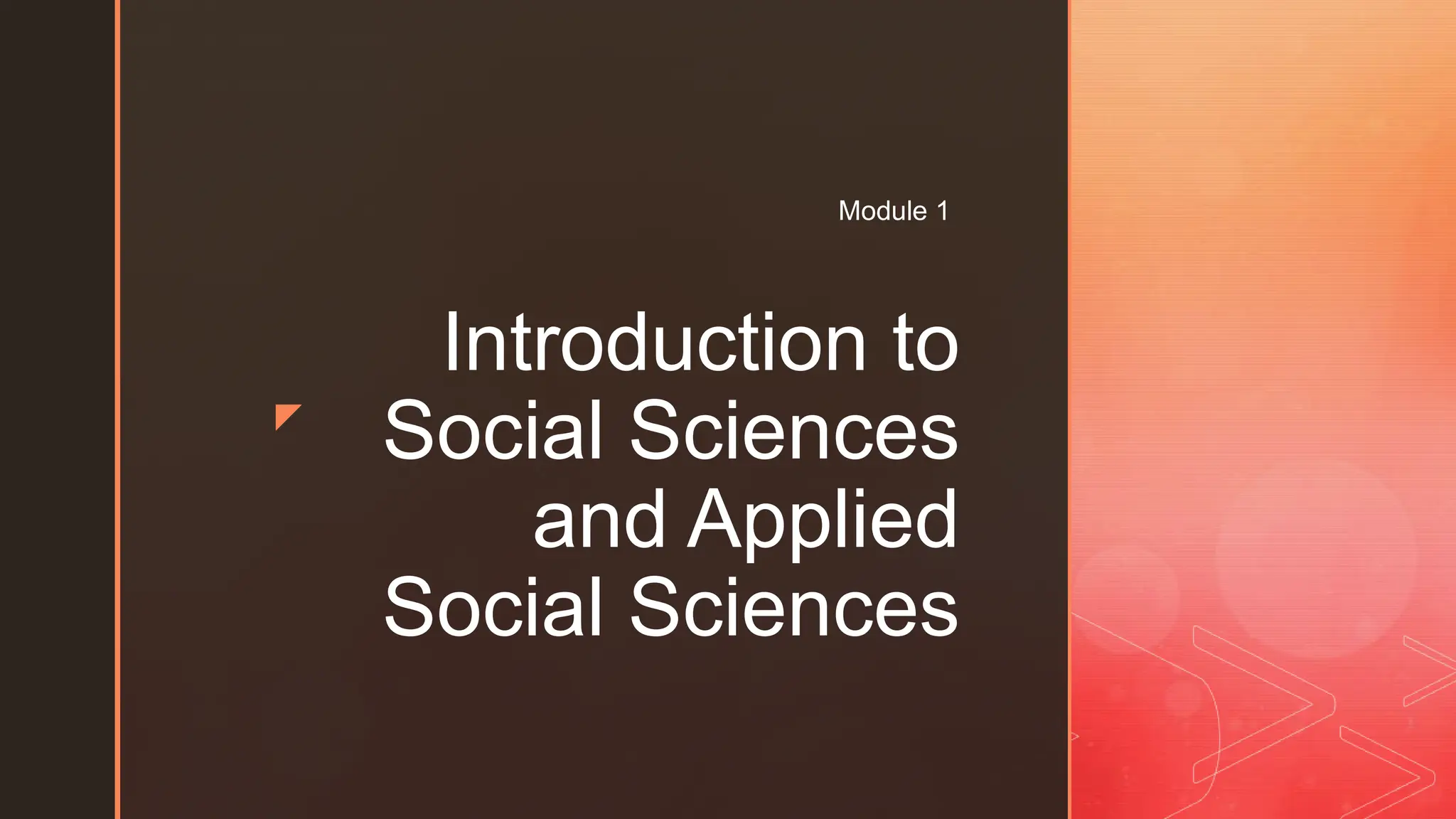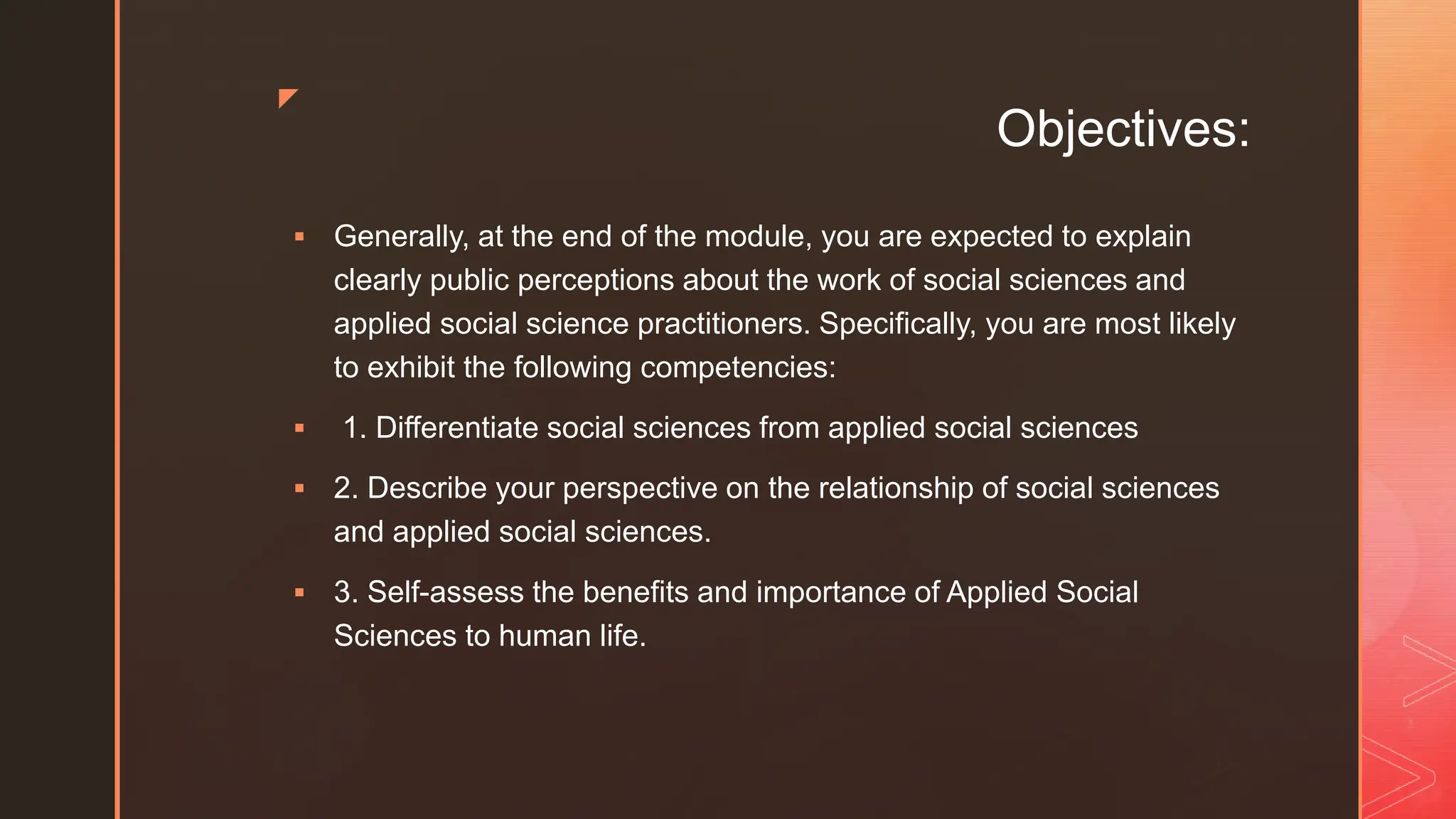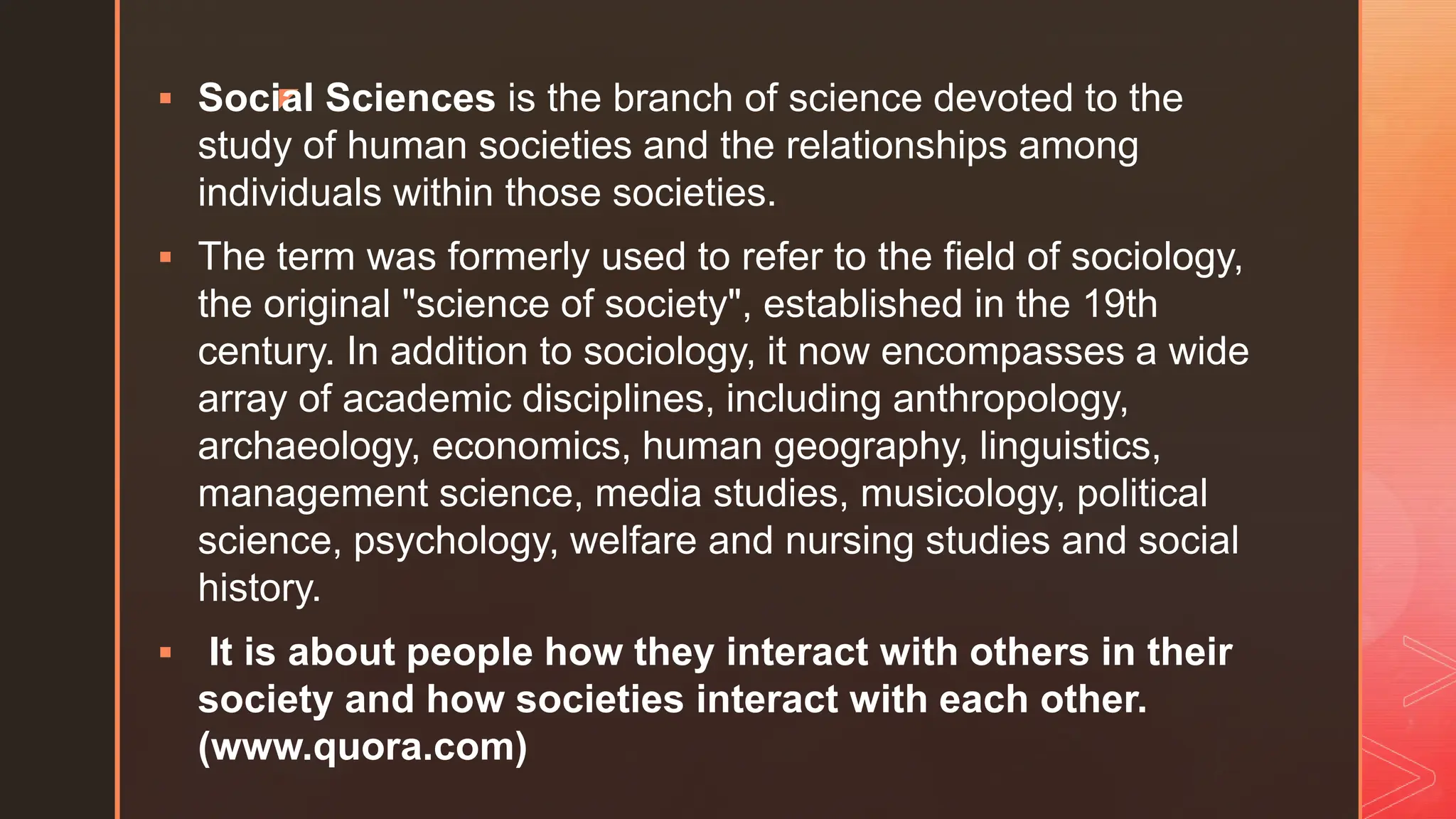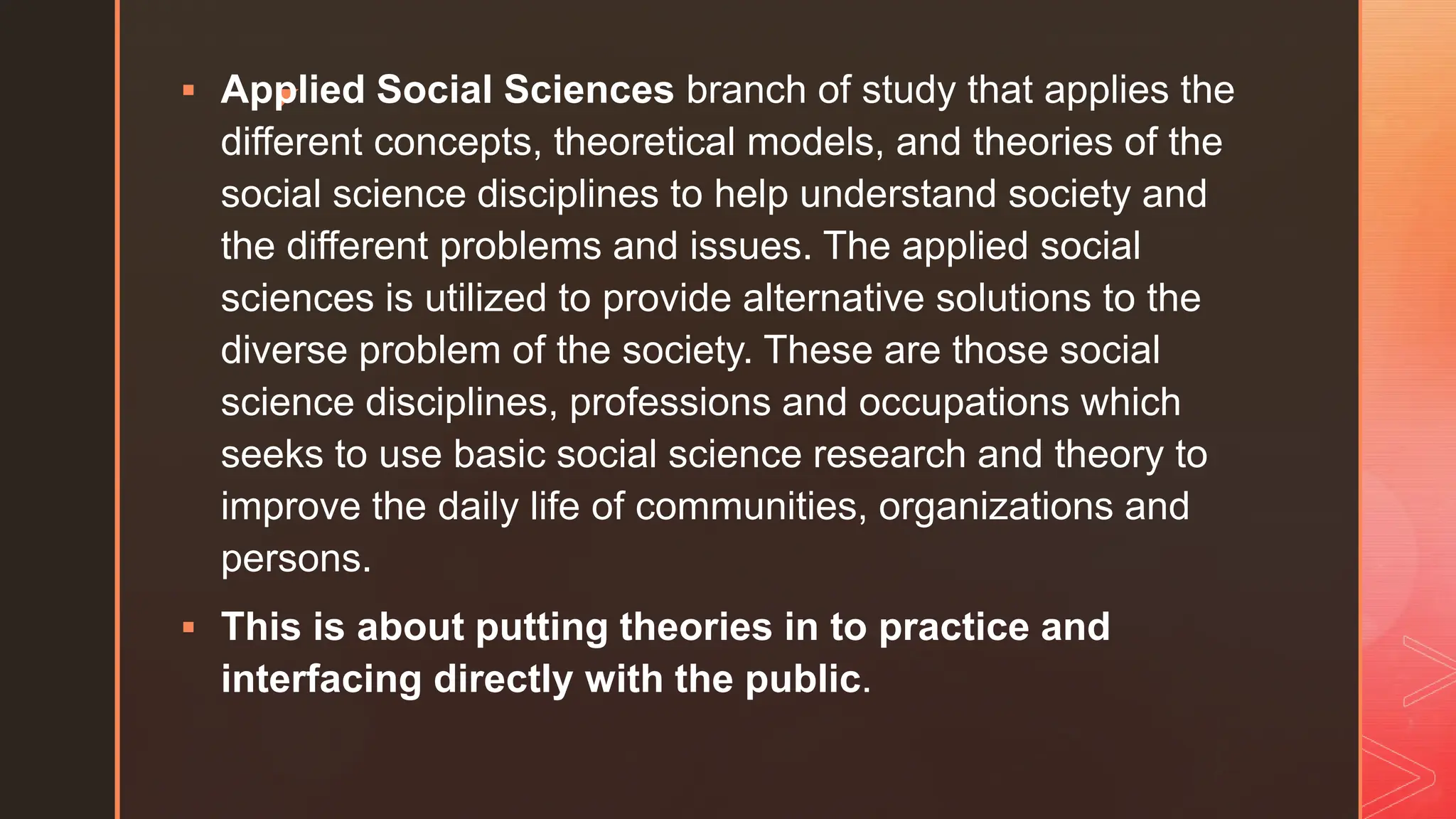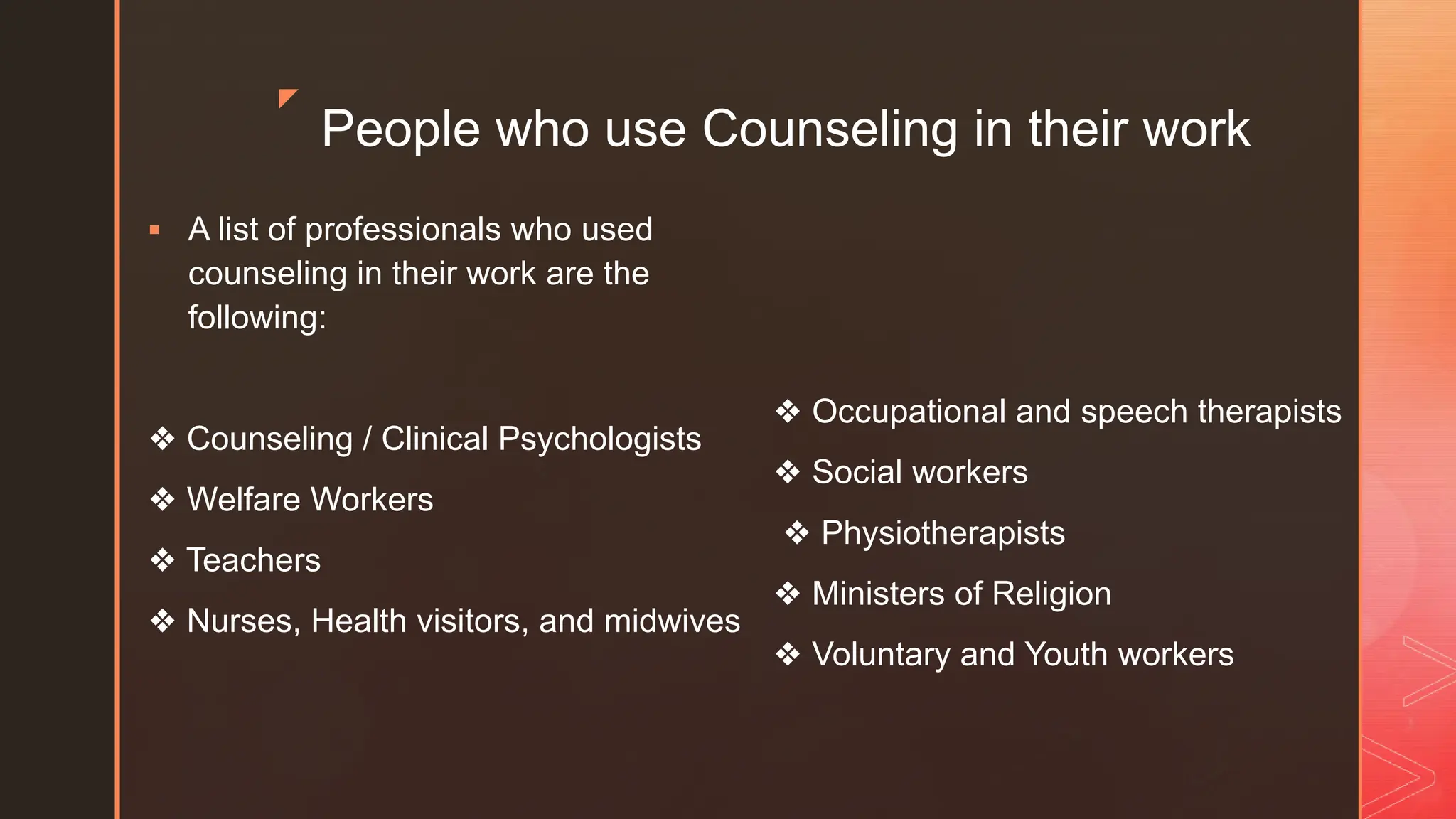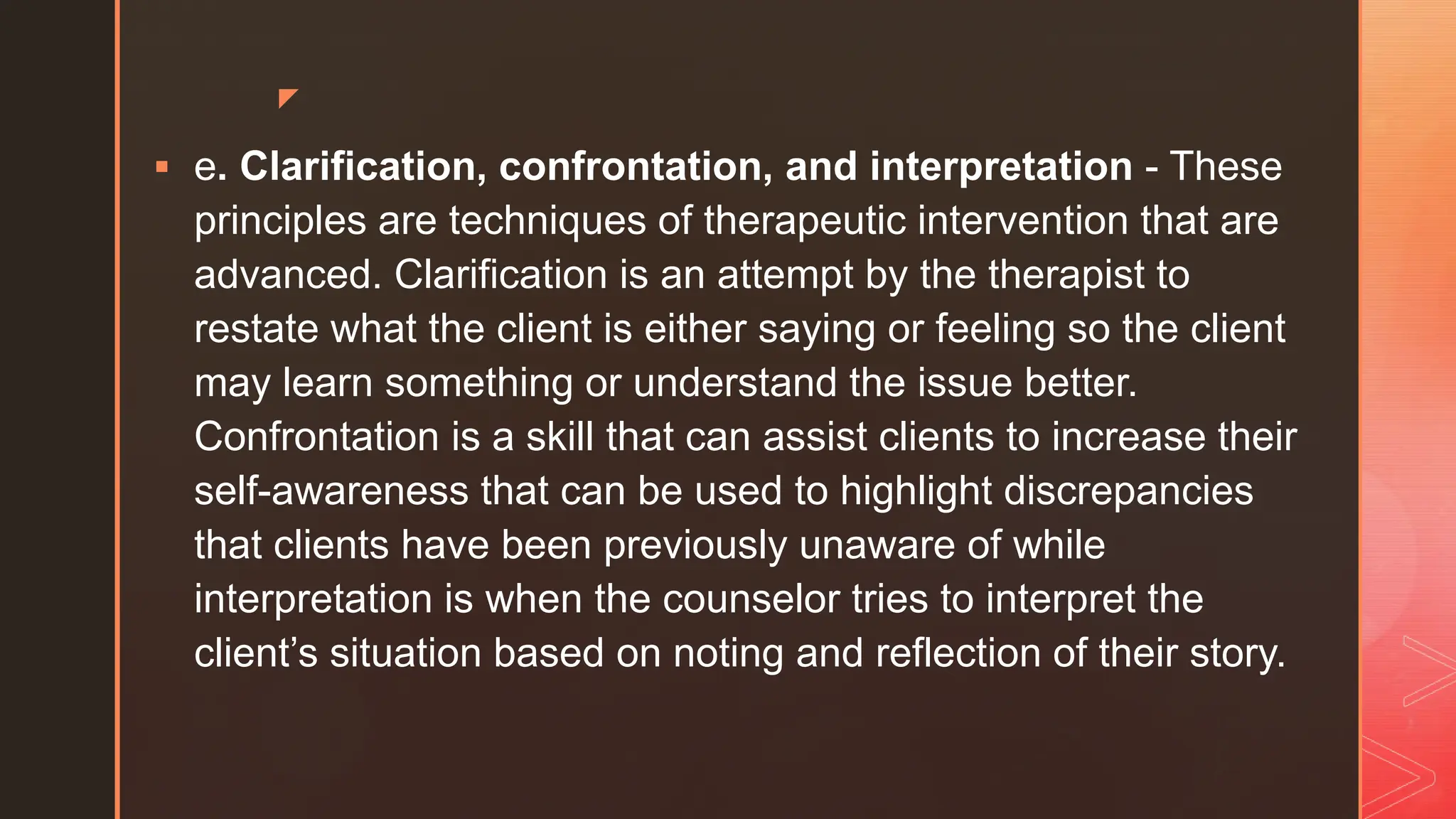This document provides an introduction to social sciences and applied social sciences. It outlines the objectives of differentiating social sciences from applied social sciences and describing the relationship and importance of applied social sciences. It discusses careers in applied social sciences like counseling, social work, and communication studies. The document also covers the goals and principles of counseling as an example of an applied social science field.
